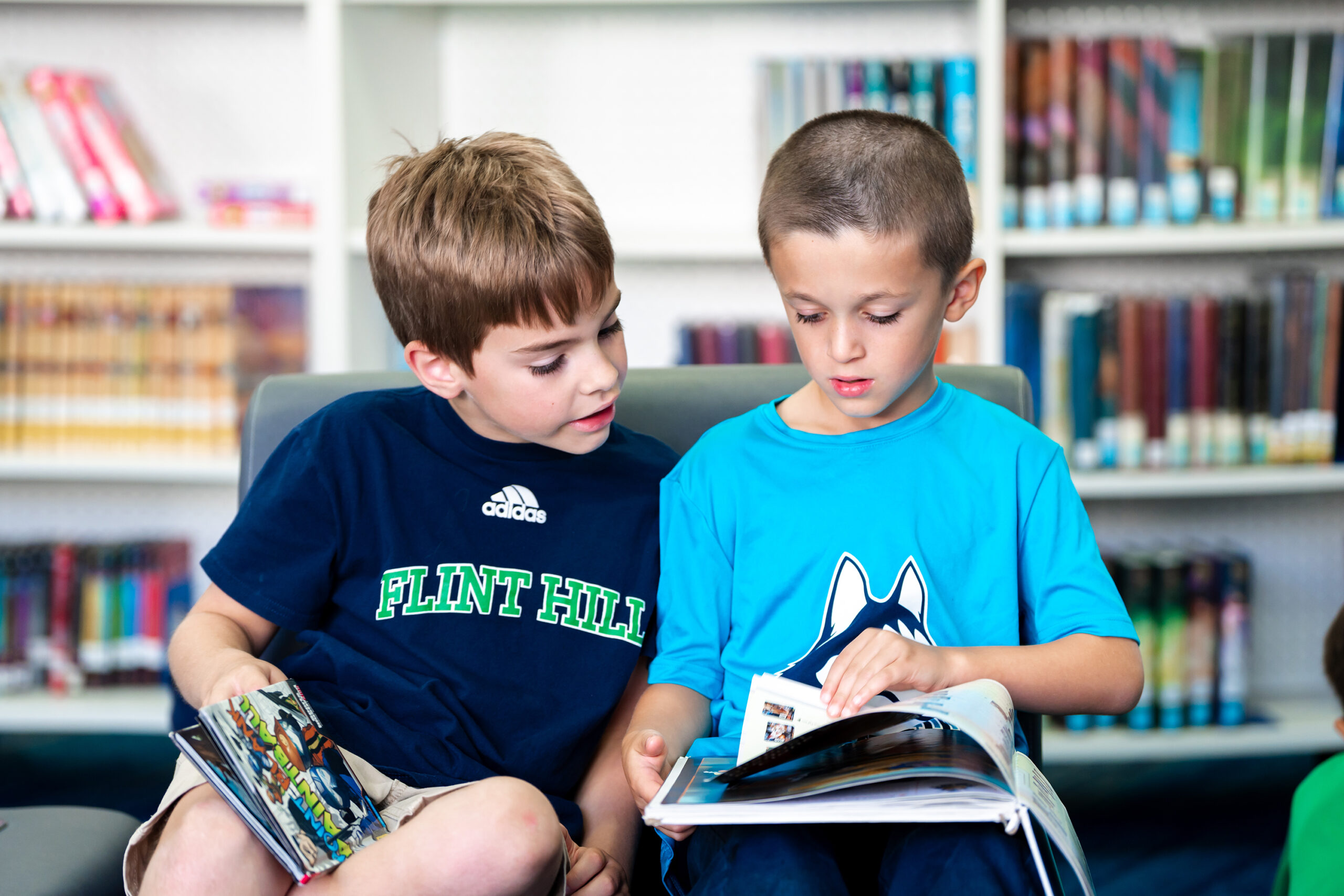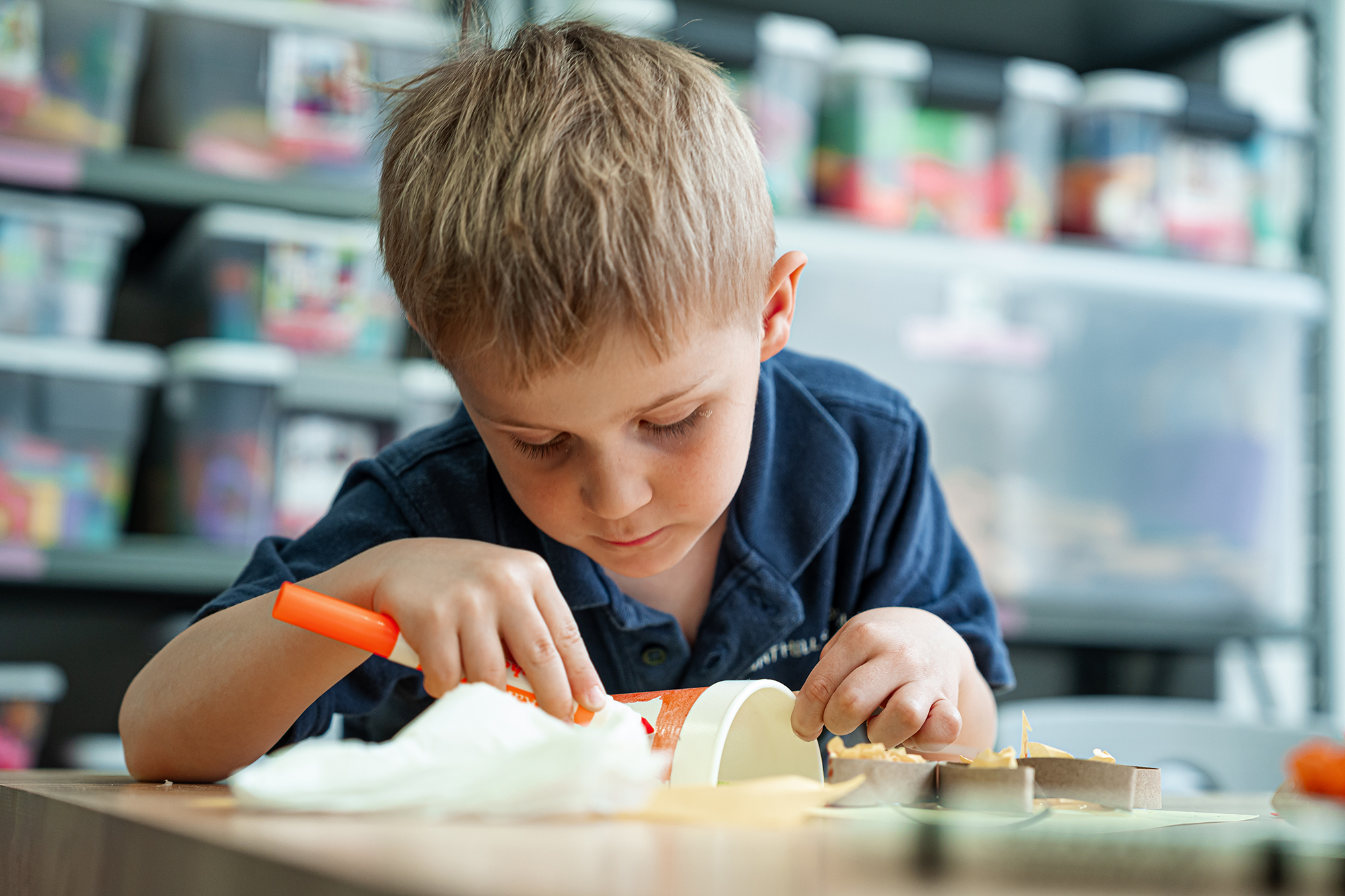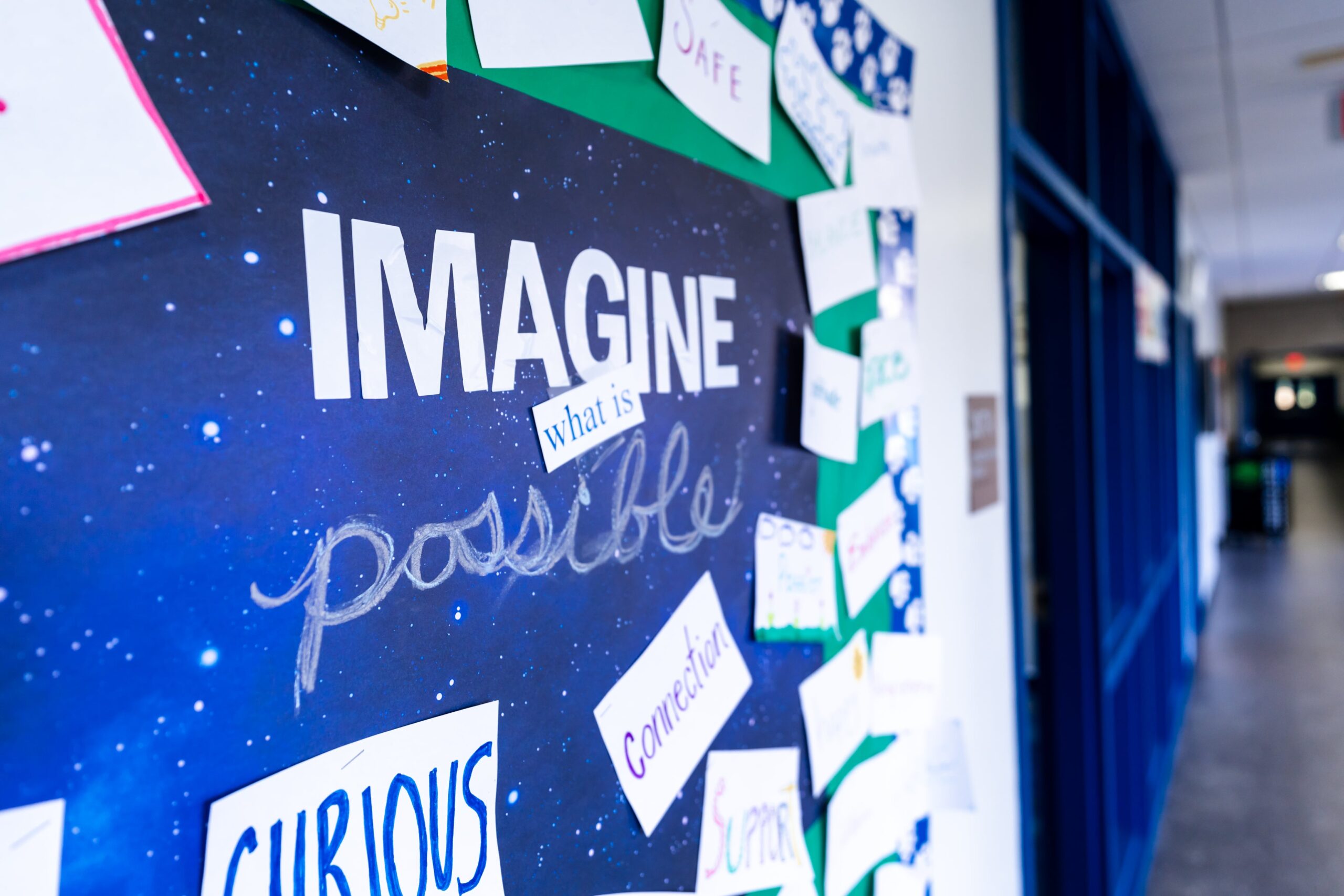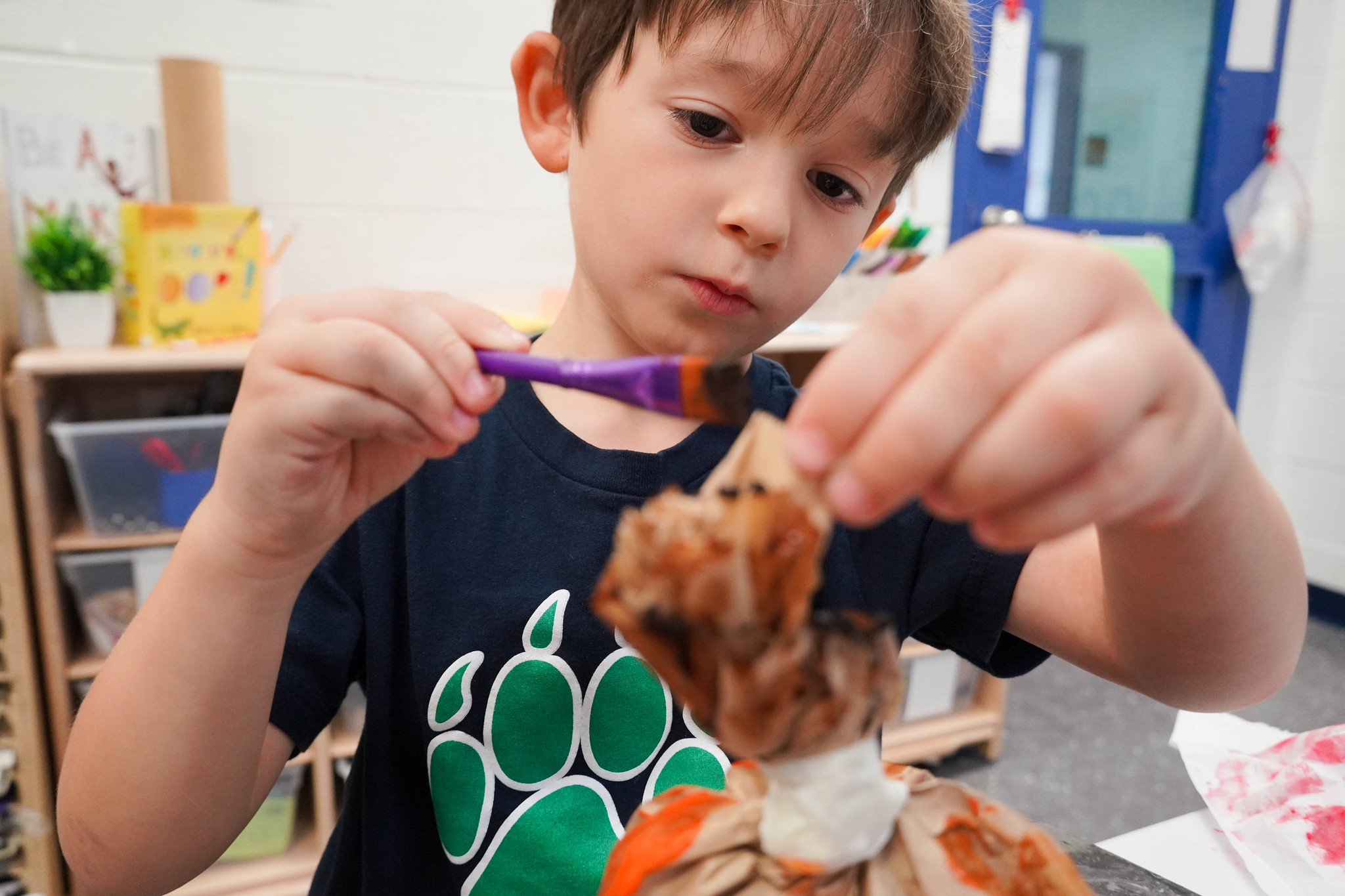LEARN MORE ABOUT FLINT HILL
HUSKY HIGHLIGHTS
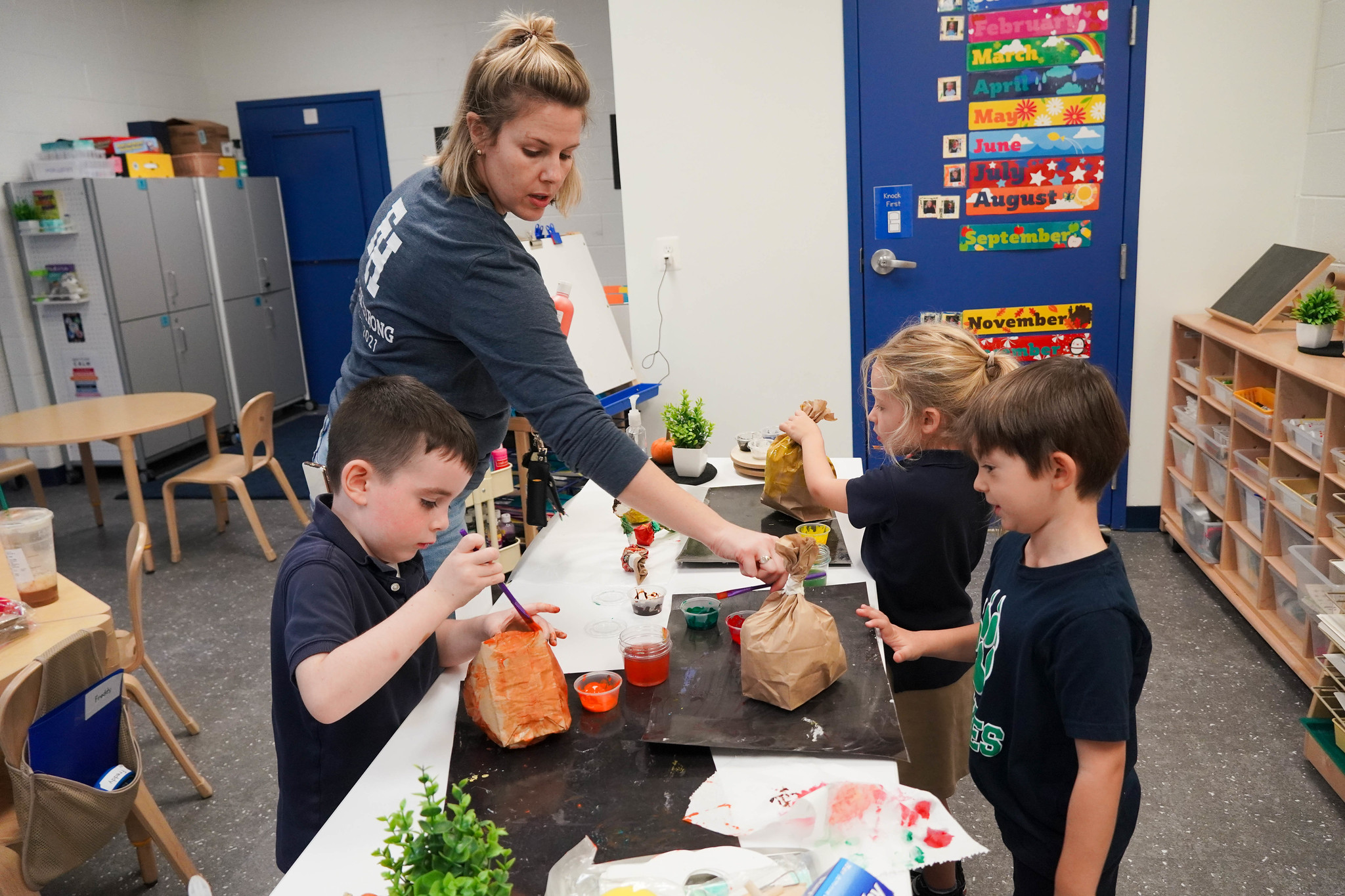
September 21, 2023
Written by Flint Hill Admission Team
Five Ways You Can Prepare Your Child for Kindergarten
Parents always want to make sure their children are ready to start school. But what does "ready" mean in this case? Here are some things you can do to make sure your child is REALLY prepared for kindergarten, according to our own kindergarten teachers.
1. READ TOGETHER
One way that's really great to practice before you start school is reading together every day. Reading together is not only a great way to spend time with your child, but also a great way to build comprehension skills.
Talk about new words and build vocabulary. Rhyming books are a great way to build phonemic awareness and get ready to really practice those reading skills when they start the school year. You can also practice retelling stories with your child, thinking about who the characters are, making predictions about what might happen next.
Even re-reading the same books over and over again can be a great way to build comprehension and retelling strategies.
2. PRACTICE MULTI-STEP DIRECTIONS
So thinking about multi-step directions, starting small, we want to make sure kids can follow the one-step direction. And then from there, once they have that one-step direction to “Go, get your coat. Now go get your coat and put it on. Go get your coat. Put it on and zip it up.” Following those steps, building that stamina, but also solidifying step one, solidifying step two and continuing to build and scaffold is very helpful.
And again, it just aids in the ability to follow multi-step directions in terms of, “We're working on handwriting. So grab your paper, grab your pencil. Where do you start? How do you form that letter?” It all is tied together.
So you might say “Grab your shoes, come downstairs and then get your backpack” as an example if you want to practice getting ready for school.
3. BUILD SELF-HELP SKILLS
One way you can really help your child feel successful and independent when they start kindergarten is practicing some basic self-help skills at home.
So an example of this might be putting on their own shoes, zipping their coat, opening items that they might have in their snacks and lunches. So if there is a Ziploc bag that you send to school or those pouches with the twist tops, those are great ways for them to practice independence at home. And you can show them how to do it, but be patient with them and give them the time to really try and learn.
It will make them feel really successful and confident, as well as getting to practice those fine motor skills and really building that independence.
4. PLAY BOARD GAMES
So having that kind of baseline of knowing how to play a simple board game like Candyland or Chutes and Ladders is very helpful for kids in terms of, again, sequencing events, waiting, practicing that self-regulation and sharing the materials, sharing the jobs. So not only are board games or card games helping kids build numeracy, but it's also really helping with that self-regulation piece, that social piece that is just so important in our day-to-day lives.
5. GET OUT AND PLAY
Outdoor play is probably the number one thing that you can encourage your child to do this summer and having that open free play, if there's an opportunity. We know it's been difficult with the pandemic to connect with other children, but if you have neighbors that you feel comfortable playing with or a play group or families that you connect with, getting outside and giving the kids opportunities to explore to really jump, climb, run, that builds those gross motor skills and that core strength, which actually is going to really help them with writing tasks in kindergarten.
As much as parents and families can expose their kids to the outdoors and all the different parts of our community, like museums and zoos and trips to the library. Any of that exposure shows them that learning is all around us and it really helps them to make connections inside the classroom when they have those experiences.
WE’LL MEET YOUR CHILD WHERE THEY ARE
Kindergarten teachers do not expect our students to know all of their letters or be reading books or know how to add already. That's what teachers are here for, and children come to us with a variety of skills every year. As long as they have some of that social background around playing and being able to be part of a group, as long as they have started to practice some independent skills, as long as they enjoy interacting with books, those are the kinds of things that they really need to arrive to us and feel successful on day one.

CHAT ABOUT KINDERGARTEN
Want to discuss your child's education? Schedule a quick call with or send an email to Dawn Hopke, our kindergarten specialist. She'll be happy to answer any questions you have, whether it's general advice or interest in Flint Hill.
LEARN MORE ABOUT FLINT HILL
Fill out the form to receive updates from our team.
RECOMMENDED FOR YOU
A Flint Hill teacher explores how you can create an inclusive library for your young readers at home, along with some book recommendations.
Drawing directly from neuroscience research, Flint Hill's educational philosophy emphasizes the importance of thorough comprehension over hurried advancement.
A VAIS committee completed its 10-Year Accreditation Visit in April 2024. The committee reported its immediate findings in this short presentation to faculty and staff.
Kindergarteners embarked on a project that nurtured their artistic abilities and expanded their horizons to encompass cultural and linguistic dimensions.



